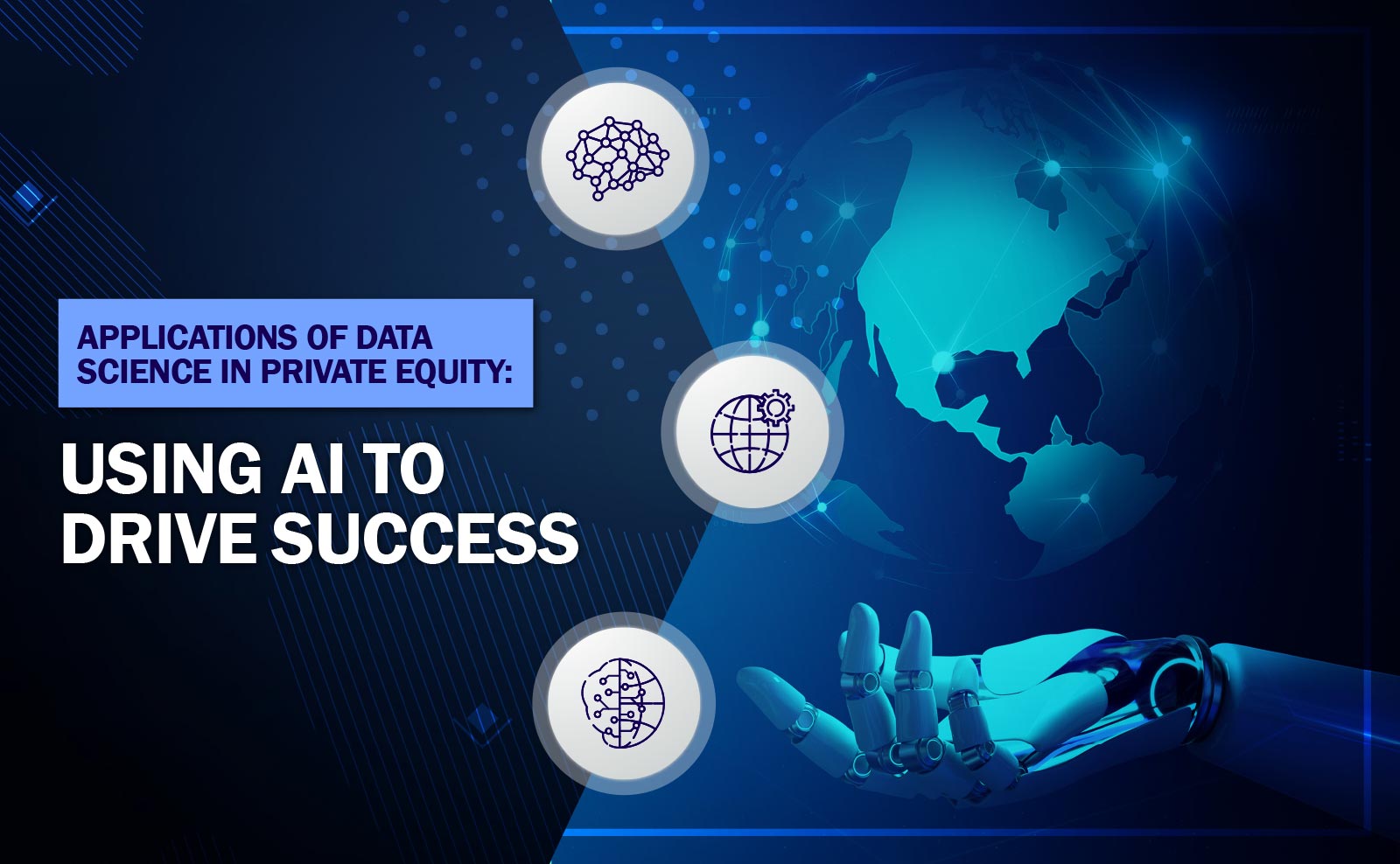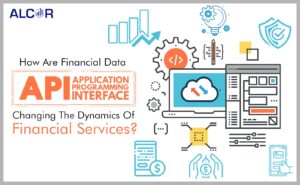What do private equity firms and artificial intelligence (AI) have in common? While it might seem odd, private equity firms increasingly leverage data science techniques to drive investment decisions and manage their portfolio companies more effectively. In this article, we’ll explore the history of private equity, how AI drives success in private equity, and why data science skills are in-demand by these firms today.
Why Data Science is Important
Data Science is an emerging field impacting the world around us and changing how we interact with technology.
Data scientists are shaping our understanding of how businesses work and market behavior. For example, private equity investors and private equity-backed firms can use data to gain a competitive advantage in the investment world. Collecting and analyzing this data provides a massive opportunity for them to make better decisions faster than their competitors, ultimately leading to more successful investments. They leverage tools like artificial intelligence (AI), machine learning, deep learning, predictive analytics, systematic trading, chatbots, natural language processing (NLP), and many more. In addition, they can create a system that learns from past successes and failures, applied across different sectors.
AI – Extensive implementations of in-house Data Science techniques
Private equity’s level of data-science maturity is still under development, but significant funds and managers are already setting the stage for their data-driven operations.
“Data science in private equity” From internal data science work in all PE firm portfolios to the data science focus of AI/ML project rollout across the PE firm’s portfolio companies.
Recently the rise of hybrid companies between tech and investment firms. They ingest Data Science talent, embed AI/ML teams across the portfolio, and then manage it from a hands-on position. These would lead, usually to delegating consultants in the past.
We can see from this change in company priorities that Data Science has recently found its prominence and is of greater interest to Investment Firms as they become keen to focus on retaining, developing, and growing it. Competing with other firms and increasing their clientele is careful work.
Using anomaly detection
Right after a company enters a Private Equity company’s portfolio.
Before investment takes place, it can offer the company to combine traditional ways of evaluating investments with data science in private equity and its methods to find the rare option that was an outlier eligible for investment.
These signal and anomaly detection algorithms allow analysts to determine opportunities in both directions when looking at investments. For example, they signal the time to get more investment or the times to refrain from making any. Using anomaly detection
Three Ways Data Science in Private Equity can impact
Like private equity firms, these organizations have large and sophisticated operations. But, unlike startups, PE companies have matured and are already highly successful.
- Data science can optimize operations, reach customers, and build a competitive advantage. In addition, the available data scale allows analysts to find insights that would otherwise go unnoticed.
- The more data and time spent analyzing it, the greater the likelihood of finding a competitive edge in an industry. For example, private equity investors use their detailed knowledge about each company to identify strengths and weaknesses to buy or sell at a better price.
- Turning existing data into new insights is vital for their business decisions and helps them assess whether they should take a stake in a company they may not have been aware of before.
5 Tips For Navigating A Data Science Career In Private Equity
In today’s world, private equity firms are data-driven. Data scientists are the key to unlocking deep insights that lead to better decision-making, which is critical when investing and managing assets.
Here are five tips for navigating a private equity data scientist career.
1) Leverage your experience. Data science is an emerging field, and there may not be many people with experience applying these techniques in the world of PE. You can build a competitive advantage by using your skills to turn existing data into insights.
2) Think about what you want from a company. For example, if you’re going to work at a small startup with less bureaucracy but more significant risk, it would make sense to look at companies outside the Fortune 500. On the other hand, if you prefer stability but also value collaboration over independence, then consider top organizations within the Fortune 500.
3) Find out how data science is being used at other companies first. One way to get started is by learning about organizations with similar roles and how they’ve used data science effectively.
There’s no shortage of resources out there! Meetups, MOOCs, podcasts, and blogs support aspiring data scientists.
6 Tips To Learn Machine Learning with R
- Learn the basics of R – One doesn’t need to become an expert or a pro in the language, but you need a basic understanding.
- Explore different libraries – Many libraries and packages are meant for machine learning tasks, so it’s worth exploring them.
- Look into visualization tools. Visualizing your findings can be a huge help when trying to make sense of all your data.
- Keep up with innovations. Data is constantly evolving, so it’s crucial to stay on top of any new developments to maximize its potential.
- Use the right resources. Whether you’re trying to learn more about specific programming languages or just exploring certain topics online, plenty of resources will help you along the way.
- Track metrics over time. Knowing how data changes for months, weeks or even days can be very beneficial. For example, suppose you notice a trend in customer sentiment across social media platforms for a week and want to get more information about it. In that case, you may want to track customer sentiment levels every day for two weeks.
Key Takeaways
AI is being used to drive success in private equity, and its benefits are expected to grow in the future.
For example, AI can be used by PE investors and PE-backed companies to build a competitive advantage because it provides insights into how to reach customers. It also predicts what will happen in the future and helps find patterns that have not been noticed.
Data Science is revolutionizing many aspects of private equity, including deal-making, investments, and operations, which leads to increased investor returns. Data science-driven machine learning enables better decision-making with an accurate understanding of one’s data.
Firms that use data science in private equity as part of their operations provide better service levels for clients leading to client satisfaction and retention.
Data science in private equity shows promising customer acquisition costs and revenue per customer, increasing profitability for organizations across industries.









